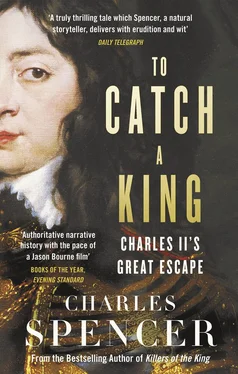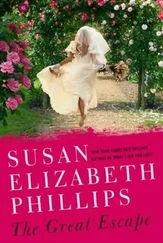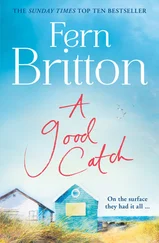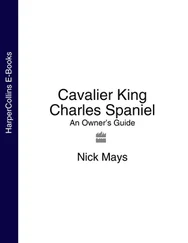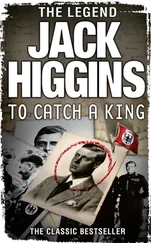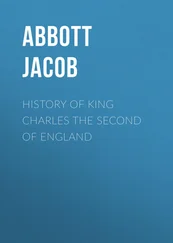Pepys was not in awe of royalty to anything like the same degree as Colonel Gunter. He had been in the crowd at the beheading of Charles I on 30 January 1649, and it is clear that he had some sympathy with the ruthless Parliamentary justice meted out that day. During his time as a naval administrator he never shirked from locking horns with Royalists if, in his view, they were holding back the progress of the service. His disagreements with Prince Rupert of the Rhine, the poster boy of the Crown’s cause in his youth, and Lord Admiral of England in middle age, show a lack of deference to those of the highest birth if he judged them to be wrongheaded, and therefore dangerous to the nation. Pepys was a loyal patriot, but not a fawning one. He therefore makes for an appealing midwife in the delivery of the king’s tale.
There was a great appetite for this unique royal story during the king’s lifetime, even amongst his most intimate circle. James, Duke of York, wrote to Pepys in the middle of 1681, saying he wanted to read for himself his elder brother’s description of his time on the run after the defeat at Worcester. It was his second time of asking this favour of Pepys. Even though the duke promised not to take a copy of the account, Pepys dared to set out that this was a journalistic project that was still very much in progress, and one that he felt especially protective of: ‘My covetousness of rendering it as perfect, as the memory of any of the survivors (interested in any part of that memorable story) can enable me to make it,’ he wrote, ‘has led me into so many and distant enquiries relating thereto, as have kept me out of a capacity of putting it together as I would, and it ought, and shall be, so soon as ever I possess myself of all the memorials I am in expectation of concerning it. Which I shall also (for your Royal Highness’s satisfaction) use my utmost industry in the hastening.’ 2
He eventually sent the transcript to the duke, while mentioning that he was still awaiting the key testimony of Father John Huddleston, a Roman Catholic priest who had taken a prominent role in the tale of royal derring-do. Pepys received this in March 1682 from Lady Mary Tuke, a lady-in-waiting to the queen, who forwarded it to him on Huddleston’s behalf.
Pepys died in 1703, never having completed his task of stitching together the threads that he had gathered together so painstakingly. Perhaps the death of the central figure in the tale made the undertaking one that seemed less pressing.
Whatever the reason, the testimonies he had assembled, and which he left behind in one place, are invaluable to those that have followed. Indeed, the accounts of Charles II himself, as well as those of Father Huddleston, Thomas Whitgreave and Colonel Phillips, are priceless testimonies to a factual tale that reads like fiction. All four have long been recognised as the key first-hand records of one of the greatest escapes in history.
Thomas Blount provided another sparkling contemporary account of the getaway. Blount was a Roman Catholic, and a Royalist, who gloried in the miracle of the tale, and so might have been tempted by his predispositions to stray from the truth. But he was also a lexicographer and an antiquarian, who studied law. His intellectual discipline, when compiling dictionaries of obscure words or studying the distant past, set a standard for his painstaking research in this field of recent royal history. In his introduction to Boscobel Blount assured his readers: ‘I am so far from that foul crime of publishing what’s false, that I can safely say I know not one line unauthentic; such has been my care to be sure of the truth, that I have diligently collected the particulars from most of their mouths, who were the very actors in this scene of miracles.’
Nearly all of Blount’s sources were still alive at the time of Boscobel ’s completion. Far from disputing his version of events, they were happy to contribute further recollections, which he included in his next edition. It seems that he accurately assembled the memories of his interviewees, many of whom had little or no literacy. They were relying on Blount to disperse their experiences to his readers.
How best to use such remarkable sources? Unlike the king’s version of what had happened during the six weeks, the other contributors, of course, concentrated on what they remembered from their own few days or so in the core of the narrative. It is obvious that nothing else in their lives came close to the excitement of being involved in their king’s survival. As a result, extraordinary details are remembered – the opening of a bottle of sherry releasing two hornets from its neck; the way the king cooked his collops of lamb; the sight of his battered and bloody feet.
Equally understandable would be the embellishment of tales over time, and the exaggeration of services rendered. I have weighed up the likelihood of things happening as recalled, the closeness of the witness to the action, and the inevitability of human foibles clouding the picture, as best I can. There remains one imponderable, which I try to deal with even-handedly: the competing accounts of Captain Alford and William Ellesdon as to what upended the escape attempt at Charmouth. At least one of them has to be lying, but both had supporting witnesses, so it is hard to draw a conclusion either way.
Charles II himself’s memory of events seems to have been accurate, the day-to-day order of events apparently seared into his mind. For a man of hearty appetites, the recall of when and if he was fed, and what with, seems to have been a perpetual concern: when he first spoke to Pepys, he was feasting on pease-pudding, and two different types of roast meat. On the other hand, Charles chose not to deal with fears, or other emotions, in his account. This is a great shame for the modern reader. Perhaps admitting to what might, in the late seventeenth century, have been perceived as weaknesses, was considered a little much.
Those mistakes that Charles makes in his recollections seem to me to be understandably human: he was, for instance, wrong to think that one of his collaborators, Thomas Whitgreave, had the surname of ‘Pitchcross’, or ‘Pitchcroft’. That was, in fact, the name of the field to the north of Worcester where the Royalist troops had mustered before the dismal defeat that brought about his need to run. If anything, such an error simply suggests that Charles’s recollections came direct from his memory, rather than from written notes.
Intriguingly rich sources aside, I have also sought, more than many others who have written on this subject before me, to set the narrative in its wider context. The battle of Worcester is pretty much forgotten, even in England. This is something that two future American presidents, Thomas Jefferson and John Adams, condemned when they insisted on visiting the battlefield in 1786. Adams wrote:
Worcester were curious and interesting to us, as scenes where freemen had fought for their rights. The people in the neighbourhood, appeared so ignorant and careless at Worcester that I was provoked and asked, ‘And do Englishmen so soon forget the ground where Liberty was fought for? Tell your neighbours and your children that this is holy ground, much holier than that on which your churches stand. All England should come in Pilgrimage to this Hill, once a Year.’
Adams had, I believe, a point.
In England we may pass one of the more than 400 pubs called the Royal Oak, and be briefly reminded of the most lyrical part of this tale. But my conclusion at the end of writing this book is that Charles’s escape attempt was not some jolly adventure, but a deadly serious race against an enemy eager to spill fresh Stuart blood on an executioner’s block.
In the final analysis, this is a tale of grit, of loyalty, and of luck.
Читать дальше
